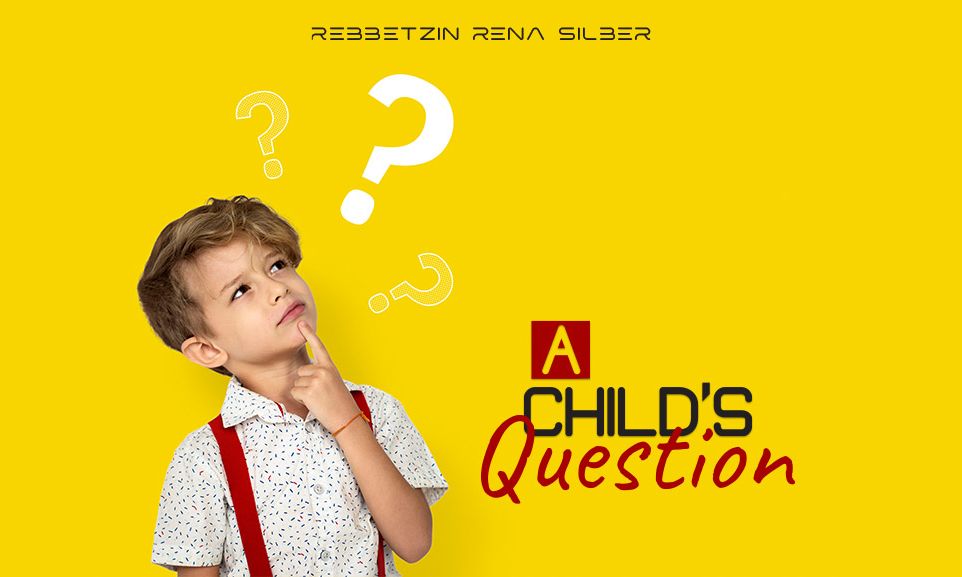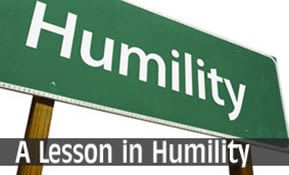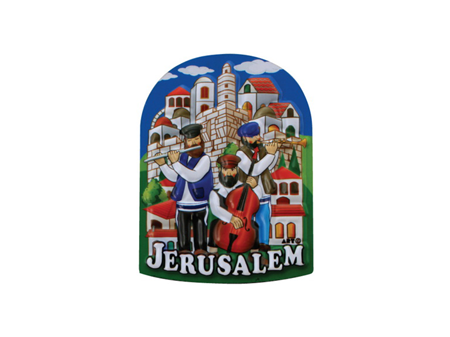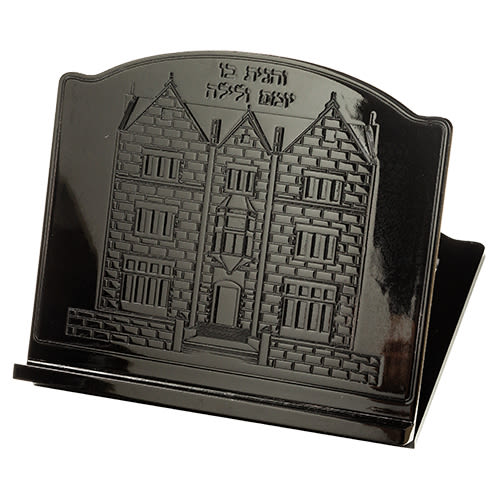
Vayera: A Child’s Question
The age of a Jew has nothing to do with the number printed on his passport. Our years are measured by accomplishment - by what we do accomplish and even more by what we want to accomplish.

When the Rebbe Rashab, Rabbi Sholom Dov Ber Schneersohn of Lubavitch, was a young boy of just four or five, he visited his grandfather, the Tzemach Tzedek, on his birthday. He asked for a blessing and then began to cry. The Tzemach Tzedek asked him why he was crying. He answered that he had just learned in school that Hashem appeared and spoke to Avraham (Abraham) and he wanted to know why Hashem didn’t come and speak to him! The Tzemach Tzedek answered that when a man of ninety-nine years realizes that he needs to circumcise himself, and does so, he is worthy that Hashem should appear to him.
The Chabad Rebbes would repeat this story around this time of year. There is nothing as sweet as learning Torah with the innocence of a child. The stories of the Chumash are so real, their heroes and villains are so alive. We love them, we are anxious for their success. Every year, as we read the parsha, we hope that somehow Sarah will avoid being kidnapped, that Yaakov (Jacob) won’t inadvertently condemn Rochel (Rachel), that the brothers won’t sell Yosef (Joseph). When we learn with the innocence of a child, we live within the story, as if it were actually happening right now.
Eventually we develop into scholars, and delve into the hidden meanings, the nistar (‘concealed’ level) of the Torah. The naïve, simple questions of childhood, of the child within us, are indulged then relegated to their place, along with the juvenile, scribbled pictures that decorate our refrigerators. Nevertheless, the stories of our youth are simply and strongly imprinted on our minds.
The young tzaddik asked his grandfather an eternal question: Why doesn’t Hashem appear clearly in my life? Where is He? Why is He hiding? Why is He camouflaging His love and kindness behind a veil of personal challenges and a world of chaos? He was a young boy, yet he felt that he deserved the same treatment as the great ones.
The Lubavitcher Rebbe once quipped that the age of a Jew has nothing to do with what is printed on his passport. Our years are not measured by the earth’s revolutions around the sun. They are measured by accomplishment and awareness, yet each of us, no matter how ‘young’ and undeveloped he may be, has the right, as a child of Avraham Avinu, to ask, “Hashem, why haven’t You appeared to me?”
We all crave personal connection, to be needed and wanted in a close, intimate manner. There is nothing as sweet to a parent as when a child pleads for some private time to spend with him or her. “Read me a book, play with me, take me here, buy me this,” really means, “I love you and want just to sit with you and share souls.”
Desire and Effort
In Pri Tzaddik, Reb Tzaddok Hakohen asks why Hashem recorded in the Torah the menu that Avraham prepared for the angels – they didn’t even need to eat! Yet when Avraham hosts people, instead of angels, and provides them with spiritual and physical sustenance, the Torah only hints at this, with the acronym Eshel: (achila [food], shitiyah [drink], linah [lodging]).
Rav Tzaddok Hakohen answers his question with a quotation from the Zohar: Rachmana liba ba’ee – Hashem loves the intent of the heart. Life is not as much about what we actually accomplish as about what we want to accomplish, what we try to accomplish, what we long and dream to be. Why? Because we do not control the success of our endeavors; ours is only the desire and the effort. The final outcome often depends on circumstances beyond our control or even our understanding, but God wants the heart. Avraham wanted to host and serve and enlighten those heathens. They didn’t need him. They were coming to give to him. He wasn’t conscious of that. His heart swelled with the ratzon (desire) to spread Hashem’s Name, to help another climb out of the darkness. Avraham put this yearning into our hearts, this pure desire to do the Will of Hashem.
Brit Milah (Circumcision)
The child Rebbe, the Rashab, longed to be close to Hashem. His tears are ours. The Tzemach Tzedek didn’t minimize his grandson’s feelings. He didn’t say to him, “You are too young yet.” He explained that Avraham was privileged to see Hashem clearly because he devoted his life to bringing the awareness of God to the world. Even so, Avraham still had to remove that final spiritual barrier between himself and God. Brit Milah symbolizes the removal of that spiritual barrier. The Torah is telling us that we need to circumcise our hearts, peel away whatever in us is interfering with total faith and joy in serving Hashem.
These are the weeks in the Torah in which the Fathers, Avraham and Yitzchak, are circumcised. We are also being tested, and we are given extraordinary spiritual sustenance to weather the test. One young mother echoed the feelings of all of us when she said that she has worked harder recently than ever before on emuna, internal purification, and letting go of the trappings of materialistic madness!
During these weeks, the tests in the Torah and the tests in life itself stretch our spiritual muscles. Why does Avraham try to save Sodom? Why must Sara be kidnapped again? And then comes the Akeida – the sacrifice of Yitzchak – and we are expected to offer our most beloved to Hashem! All this will culminate in the most mysterious force in the universe, Mashiach, for whom we anxiously wait, and who will be brought down in such an unholy way.
Rebbe Nachman teaches, Ayn shum yi’ush ba’olam klal – For a Jew, the idea of hopelessness, despair or failure simply does not exist. Reb Tzaddok explains it this way. Our original conception and our subsequent survival as a nation is not simply above nature, it is ‘above [and beyond] nature.’ Sarah knew that was she incapable of bearing children, and that since the birth of Yishmael, her husband, Avraham Avinu, could not father children. If Hashem had wanted to, He could have brought them a child when there was still a remote possibility. Nonetheless, Yitzchak was born, and here we are! Our nation defies the laws of nature. We are beyond nature, anything is possible!
Would anyone living in Europe during the Word War II have dared imagine that there would be more than six million Jews living in Eretz Yisrael today? Life in Eretz Yisrael was a far off dream, in fact an impossibility, yet here we are!
A story is told about the last Pesach Seder in the Warsaw Ghetto. A young child asked his father a fifth question: Next year, would they still be alive and together for Pesach? The father cried, then straightened up and replied, “I don’t know if you or I will be alive by next Pesach, but somewhere, somehow, some Jewish child in this world will be asking his father the four questions.” And here we are.
Chasdei Hashem ki lo tamnu, ki lo chalu rachamav – The kindness and mercy of Hashem is everlasting, endless and unfathomable. As the world plays games of war, we must be strengthened in our emuna. Whatever Hashem does is perfect. Somehow, with God’s help, we will survive.
In Tehillim, Dovid Hamelech (King David) calls out to Hashem for help against his enemies. So many people were against him, family members, friends, even his Rebbe. And there were the Palestinians, who even then were plaguing the nation. Yet in Tehillim, whenever King David mentions enemies, he refers primarily to his inner enemies, to that part of his life or self that separates him from Hashem, to the barriers and mistakes, the uncircumcised dimension in his life.
The Gemara teaches that Dovid Hamelech never sinned privately. His entire life was a demonstration of teshuva (repentance) for the sake of the Jewish nation. His kingship was an expression of total selflessness for the sake of his people. When an external danger threatened, he would first look into himself to deal with the mistakes in his own behavior and heart, and the enemy would fall.
To Rectify This World
We all have our work to do. We have character traits to fix, mitzvot to improve on, relationships to repair. That is where our energy has to go. The war is Hashem’s business, but the tikun olam (the rectification of this world) is our responsibility. That’s where we do our part to elevate Hashem’s world and protect ourselves from harm and destruction.
Avraham gave food to angels. Rashi says the angels only appeared to eat, out of politeness and recognition of Avraham’s deep desire to give and fill their seeming needs. The Zohar teaches that they actually did eat! They ate in the manner of angels. Reb Tzaddok explains that the avoda of a Jew is to draw down Godliness to this physical world and purify our personal domain so that it becomes a fitting dwelling place for the Shechina.
Our mitzvot enhance the service of the angels in Heaven. When a Jew does a mitzva, he enlivens and empowers the corresponding angel-energy to radiate and fulfill its purpose. Chazal say that the angels above cannot recite praises to Hashem until we Jews recite these praises here below.
Above and below are not aligned in the linear sense, rather they refer to states or levels of awareness. Higher angelic states of awareness of Hashem are based on and activated by our lower, more obscure God-consciousness. By cultivating holy and pure actions – even prior to feeling inspiration – we activate the corresponding realm of higher inspiration. Incorporated within the structure of our potential is the power to nourish, sustain and give life force to the angelic world. We simple Jews are responsible for a lot. The little Rebbe Rashab sensed this, and longed to actualize his greatness.
May we all yearn, with the purity of children, to do the Will of Hashem and merit awareness of His closeness and love.










